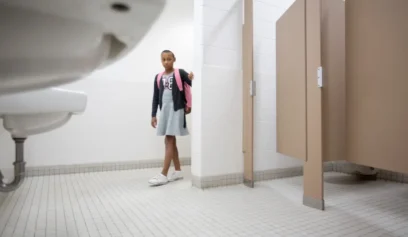Although the nation has shown signs of a resurrection from the economic downfall caused by the COVID-19 pandemic, Black men in America are stuck in a permanent recession stifled by the impact of systemic racism, a recent report shows.
According to the Center for American Progress report published in late March, Black men have continued to see “persistent unemployment gaps” even after a reported nationwide economic turn.

The contagious disease crippled the economy as businesses were shuttered to contain its spread in the early months of the outbreak. The shutdowns had the biggest impact on the paychecks of low-wage workers, many of them minorities, data show. The low-paying jobs provide little access to benefits or opportunities to save.
Even as the public health experts learned how to contain the disease and the federal government pumped historic amounts of aid into state coffers for recovery, Black men were still left out of the workforce, the CAP report shows.
“An economy where Black men consistently experience significantly higher unemployment rates than white men cannot be considered as having reached full employment,” the report says.
From the time the U.S. Department of Labor started tracking labor numbers, Black men have experienced unemployment twice as much as white men, the report shows. The employment and economic gap between Black men and white men has never closed, CAP researchers contend. In 2020, Black men earned just 75 cents for every $1 earned by white men, they said.
Researchers attributed the racial disparity to a pattern of racial discrimination, overrepresentation in the criminal justice system, unfair employment practices and policies and a lack of economic opportunity. The report says it has created a social crisis among many Black communities, and it made it harder for Black men to weather the national recession.
“We are just really seeing the consequences of historical discrimination,” Rose Khattar, one of the authors of the study, told Atlanta Black Star. “Those types of systemic issues, they take time, and you have to be conscious of them.”
As of April, the national unemployment rate was 3.6 percent, one percentage point above pre-pandemic levels. Two years before, in April 2020, the national unemployment rate was 14.7 percent and more than 17 million more people were unemployed, labor numbers show.
The unemployment rate was 12.3 percent among white men, while Black men’s unemployment rate soared higher than the national level and, so far, to a rate unattainable by white men (16 percent), the CAP report shows.
At the end of 2021, Federal Reserve Chair Jerome Powell said the labor market was “hotter” than before the pandemic. As the white men glided back into the workforce, with an unemployment rate of 3 percent, Black men were more than twice as likely to be unemployed, the report shows.
Leroy Hicks, 32, a Black man who lives in Los Angeles, said he felt optimistic about his economic status before the pandemic.
Hicks has worked multiple odd jobs for the past six years, and before the pandemic, he had a steady stream of income from his jobs as a bouncer, campaign organizer and culinary worker. But most of those jobs were put on hold while scientists tried to control the nationwide outbreak.

“When the pandemic hit. It kind of slowed down and put everything at a standstill, so I had to go out of my way to really find employment and try to stick on the right path,” Hicks said. “It made it harder for me to really stay productive in a positive manner.”
Hicks, who spent time in jail for selling drugs when he was younger, said employees often judge him because of his appearance. He has neck and face tattoos. He touted the fact that he remained free for six years.
Still, when Hicks spoke to Atlanta Black Star on May 12, he had recently spent 90 days in jail, noting that he had a moment when he relied on his past way of survival and did not “put his faith in God.” He lost his car in the past year, and it made it difficult to get to one of his jobs.
Hicks is currently a mover and freelance barber. He recently completed Los Angeles Black Worker Center’s Ready 2 Work program, which prepares him for a career as an electrician. He learned two days before the interview that he qualified for a trade education program that would propel him to a high-paying career. Hicks said he is hopeful about his future now.
“It’s gonna be way more lucrative, and it’s gonna be a big, big relief,” said Hicks, who has two children. “It’s like being able to stabilize and make sure that I’m stable and make sure that I’m able to take a load off — take the pressure off of me.”
Older men and men with disabilities also face additional obstacles in finding work, researchers said.
Researchers said older Black men have to overcome not only racism but also ageism. Older Black men tend to have less access to retirement benefits, causing many to stay in the labor force — the pool of workers — for longer. There was a 7.6 percent increase in the number of older Black men in the labor force in 2021.
The report also shows that Black workers in the South received less supplemental unemployment benefits from the Coronavirus Aid, Relief, and Economic Security Act of 2020.
CAP researchers said state, local and federal agencies should collaborate and push policies and programs to increase the number of Black men in the workforce and narrow the nation’s racial wealth and employment gap.
“The United States has a moral obligation to eliminate the barriers that have kept too many Black men from fully participating in the workforce and economy,” CAP researchers wrote. “For generations, these barriers have taken a devastating toll on Black families and communities, hindering their economic growth and prosperity.”


